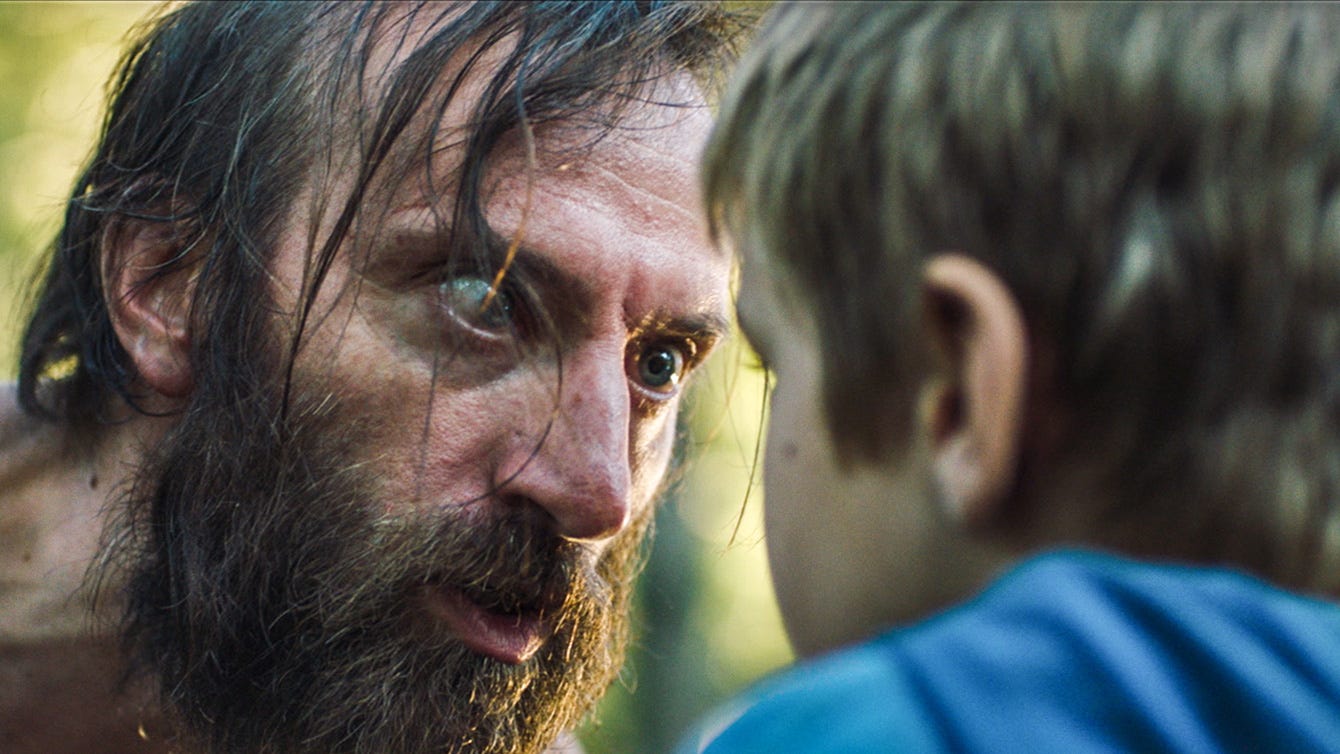It’s pretty much well-accepted that the most effective horror films are ones that manage to play on whatever anxieties are running through civilization at the time. I don’t know what that means for the Terrifier series, but it definitely holds for the bleak, despairing Macedonian film, Beyond the Wasteland. It takes a well-worn horror staple, and turns it into an anguished cry for a nation that has recently had its share of tumult.
(And before I proceed, I should note that the original title of this film was M, the same as the classic, Fritz Lang murder mystery. Clearly wishing to avoid any confusion for people doing a search on IMDB, the distributors have retitled it, Beyond the Wasteland. Which just so happens be the title of a 2022 documentary on Mad Max fans. So... good going guys.)
When we first meet young Marko (Matej Sivakov), he’s sequestered with his father (Sasko Kocev) in a run-down cabin deep in the forest. At first blush, this could be a survivalist scenario – Marko’s father tutors the boy on handling firearms, and the two spend their time foraging in the woods for food. But when Dad isn’t engaged in the basic tasks of living, he’s listening to the cryptic messages being delivered over a ham radio, and his cautions to Marko about not wandering too far from the cabin seem to be freighted with concerns beyond mundane, human threats. Soon enough, we discover that the world has fallen victim to a zombie holocaust, and when Marko’s father succumbs, the boy takes his newly-found friend, the learning-disabled Miko (Aleksandar Nichovski), on an odyssey out of the woods into the remnants of a decayed civilization.
Director/co-writer Vardan Tozija styles Beyond the Wasteland as grim child’s fantasy, viewed through the eyes of a boy forced too-soon out of his innocence. He dresses Marko in colorful shirts, the better to contrast him with dull grays of the adults around him, and has him paging through a hand-drawn story book about a “leaf-boy” in search of his mother. There are occasional lashings of bitter humor throughout – a survivor regards the caged walking corpse of what used to be his daughter and says, “Kids these days.”
What comes through most distinctly though, is how the fantasy is molded through the viewpoint of a nation that has gone through, among other things, a civil war and a refugee crisis. The hologram of a fascistic politician delivers a xenophobic rant (that echoes too closely the speeches of a certain, recently reelected former president), and Marko picks his way through what appears to be the shells of bombed out buildings. That there is a glimmer of hope at the end almost feels beside the point. This is a vision of the future from a world where all potential futures are clouded in doubt.
In some ways, Beyond the Wasteland, treads a well-worn path. But if the outline is one we’ve seen before, the outlook is unique. Zombie films frequently grieve for the fate of humanity, this one comes from a place where the grieving is rooted in unfortunate history.





